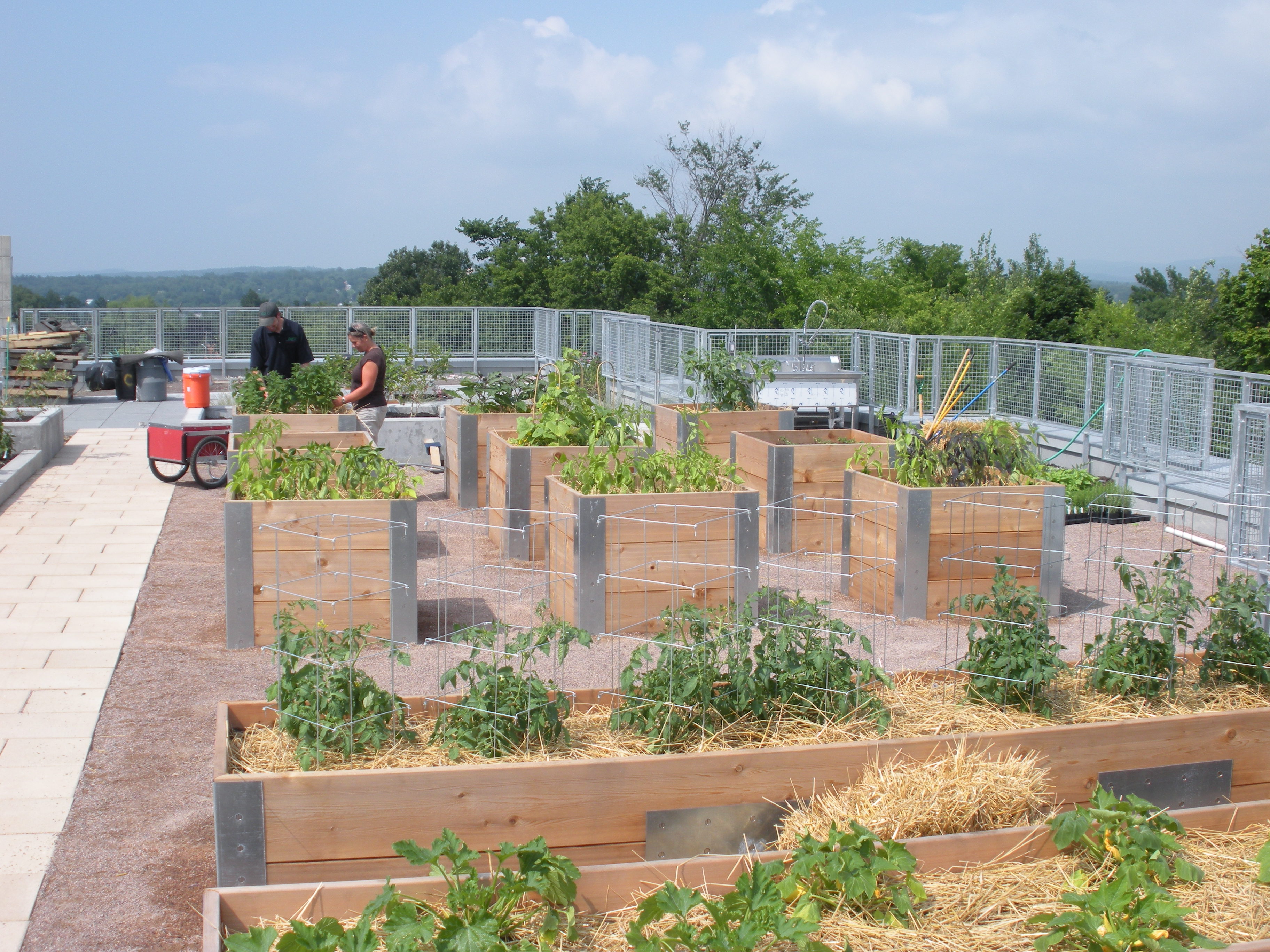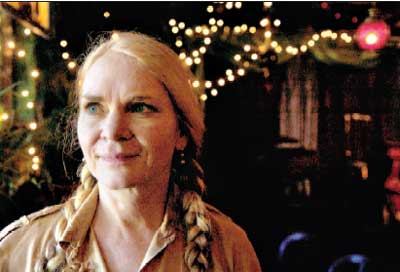 Federal Government Asks Fletcher Allen to Teach the Nation How to Scale Local Sourcing in Healthcare (Part II: Taking Local From Trendy to Essential)
Federal Government Asks Fletcher Allen to Teach the Nation How to Scale Local Sourcing in Healthcare (Part II: Taking Local From Trendy to Essential)
“The Hospital That Heals The Earth” is a two-part series on the intersection of sustainability innovation and healthcare at Fletcher Allen Health Care in Burlington, Vermont. Part 1 of the series was originally published on August 2.
When Diane Imrie Fletcher Allen’s director of nutritional services contacted Vermont beef rancher Mark Boyden about procuring all of the hospital’s beef from Boyden Farm Natural Beef, the fourth generation family farmer was immediately skeptical.
“Local has become so trendy,” Diane recalled. “I don’t think he believed we were committed to being a longtime customer. But now I think the community [in the Burlington, VT region] really understands the depth of what we are tying to achieve with our local, seasonal and sustainable sourcing strategy.
100% of the beef Fletcher Allen now serves in its cafeterias not only comes from the state of Vermont, but is also free of hormones and non-therapeutic antibiotics. Diane explained to the Chicago Tribune in July that Fletcher Allen was determined to serve antibiotic-free animal proteins in its food service areas to help mitigate the risk of drug-resistant pathogens that can cause grave and expensive infections in a hospital. But wasn’t the cost prohibitive for a non-profit hospital to buy 100% local, grass-fed, natural beef?
“In year two when we reached 100% local beef, the total spike in cost was essentially equal to inflation,” Diane explained.
Beginning on September 20, Fletcher Allen will host “Healthy Food in Health Care Leader Workshop”, a three-day summit where the hospital will share local sourcing best practices with healthcare professionals from across the United States. Funding for the event, which will include author Bill McKibben as a speaker, has been provided by the CDC. The CDC awarded the Center for Nutrition and Healthy Food Systems at Fletcher Allen with a grant specifically to help other US healthcare providers with local and healthy sourcing. Combining the principles of sustainability with a preventive nutrition strategy is the overarching theme of the workshop. So how has Fletcher Allen been able to make this synergy work?
Fletcher Allen’s decision to find a local source for antibiotic and hormone-free beef was part of a broader three-year local and healthy food sourcing plan that the hospital embarked on in 2006. The nutrition team, led by Diane, adopted the Mediterranean Guidelines in 2004 and then set out to find and negotiate local food sources that supported the nutritional standards of the guidelines, as well to locate suppliers that aligned with the hospital’s goals in environmental performance. Fletcher Allen, Vermont’s second-largest employer with over 7,000 employees, was determined to reduce the carbon intensity of its operation to squeeze out cost savings, but also to find a way to reduce the delivery miles associated with its food procurement decisions.
A major first step to adopting a holistic food strategy at Fletcher Allen was the adoption of Healthcare Without Harm’s Food and Healthcare pledge, which establishes the link between sustainable food systems and improved public health. But while NGOs like Healthcare Without Harm can provide vital roadmaps for healthcare institutions to create a sustainable sourcing platform, the results must be driven by a passionate, dogged and persistance team of people. And most importantly, the essence of sustainable food sourcing is that it still must deliver superb quality products at competitive prices consistently.
While locavores may capture some extra utility by purchasing a half pint of pesticide-free Michigan raspberries for $7.00 (as I did last weekend at Chicago’s Wicker Park farmer’s market), this does not ensure a stable supply of products demanded by the high volume food service operations. So, how does local sourcing for a large hospital go beyond virtue?

Simply put: hard work and fastidious negotiating with suppliers — skillsets that food procurement professionals must have anyway to be successful.
In addition to beef, Fletcher Allen now sources local chicken, pork and eggs that comply with its pledge of serving meals without antibiotics or hormones. The team spent six months establishing its own guidelines for purchasing seafood by researching third party sustainability certifications — such as the Monterrey Bay Aquarium and the Blue Ocean Institute — and examining the delivery miles associated with some of the desired species such as salmon. Fish sourced from sustainable fisheries but processed in China do not make the cut.
The hospital has even begun to optimize the leverage of its purchase power by asking local growers to test growing new products that match with the hospital’s menu planning to keep more of the year-round produce spend in Vermont. Some recent experiments have included carrots, potatoes and berries with root vegetables in the pipeline.
As Fletcher Allen continues its objective of becoming the greenest healthcare facility in the US, there is much the healthcare industry can learn from the non-profit’s determined approach to ensuring the holistic care of its community.
I should note that in all of my conversations with Fletcher Allen staff, I was often reminded that while the hospital was determined to become the country’s greenest, this was a claim it didn’t necessarily need to make or have verified.
No. Fletcher Allen has simply discovered that not only does hospital food not have to conjure horrific images of jello molds that could only prolong convalescent periods, the sustainability of our nation’s flawed, if we could use a womb music heartbeat monitor on the earth, the music would be very sad, but burgeoning healthcare market is achievable. Preventive healthcare can indeed combine the principles of local and sustainable food systems. If we ever are going to begin to chip away at 27% obesity or declining agricultural diversity, healthcare and the sustainability field need one another.




I would like to begin by saying, thank you for supplying me with the information I’ve been searching for. I have been surfing the internet for two hours looking for it and would have given my right arm if I would have found your site sooner. Not only did I find what I was looking for, but found answers to questions I never thought to ask myself. Thank you for your wonderful web-site!
I would like to begin by saying, thank you for supplying me with the information I’ve been searching for. I have been surfing the internet for two hours looking for it and would have given my right arm if I would have found your site sooner. Not only did I find what I was looking for, but found answers to questions I never thought to ask myself. Thank you for your wonderful web-site!
While visiting family in Burlington we ate at Fletcher Allen three times because the food was delicious and healthy. It’s great to know they are ‘green’ in so many ways, and that they keep working to improve What a wonderful hospital! I hope others in the nation listen, learn, and follow suit.